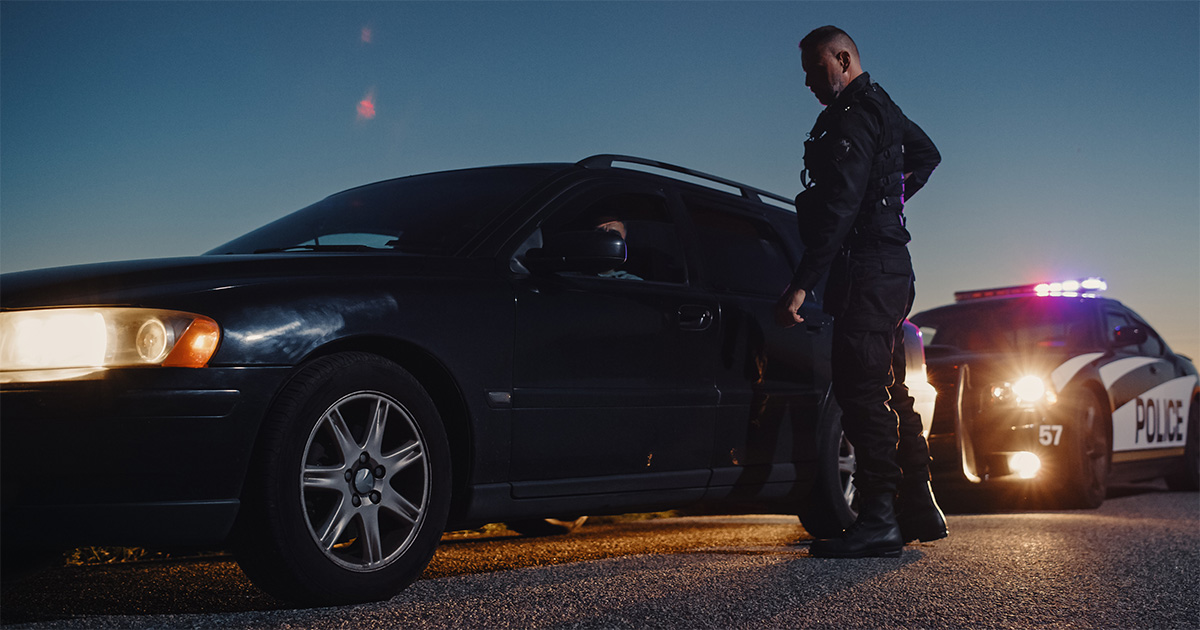DUI Checkpoints: What to do If You Get Pulled Over

Florida police maintain a strong focus on ensuring that impaired drivers aren’t on our highways and roads year-round. Patrol officers are proactive about identifying potential impaired drivers, and agencies often set up DUI (driving under the influence) checkpoints to enhance public safety.
With this consistent emphasis on preventing impaired driving, the experienced lawyers of Tallahassee’s Cowhey + Ward Attorneys at Law strongly advise against getting behind the wheel after consuming alcohol. If you’re wondering about the legality of sobriety checkpoints, our lawyers can confirm they are legal, but police must follow specific protocols while conducting them. Let’s take a closer look at how DUI checkpoints are performed and what steps you should take if you encounter one.
DUI Checkpoints Guided by Federal and State Court Precedents
The U.S. Supreme Court established the legality of DUI checkpoints in Michigan Dept. of State Police v. Sitz [496 U.S. 444 (1990)]. In its 6-3 ruling, the justices determined that such checkpoints do not violate the Fourth Amendment’s prohibition against unreasonable search and seizure. However, performing such checkpoints must balance public safety with individual rights and follow strict guidelines to limit their intrusiveness.
Florida’s Supreme Court clarified the guidelines in two precedent-setting cases. Combined, their rulings established the following protocols for Florida police agencies to conduct sobriety checkpoints:
- Advanced Planning—checkpoints must be guided by a written plan detailing how police will stop vehicles in a neutral, non-discriminatory manner and how they will address suspected impairment.
- Supervisory Oversight—Supervisors must make all operational decisions.
- Public Notification—sobriety checkpoints must be announced in advance through local media outlets or social media feeds.
- Minimal intrusion—stops must be brief, and officers can only ask invasive questions if they detect signs of impairment.
- Safety Measures—officers must ensure that proper lighting, signage, and police identification are in place to ensure motorists’ safety.
If someone arrested for DUI can prove in court that police failed to follow these protocols, judges will typically invalidate evidence obtained from the sobriety checkpoint based on Constitutional violation grounds. Additionally, police must have “reasonable suspicion” that a driver is impaired before requiring a stopped driver to undergo roadside breathalyzer or field sobriety testing. A driver arrested for DUI can challenge an officer’s reasonable suspicion in court. If the judge deems the suspicion as unreasonable, it may be enough to get the charges dropped.
How You Should Respond to a DUI Checkpoint
If a Florida police checkpoint stops you, police will ask to see your driver’s license, vehicle registration, and proof of insurance, which you are required to provide. They may ask you questions about where you are coming from, where you are going, and whether you’ve had anything to drink. You do not have to answer these questions. During this interaction, police are assessing you for potential signs of impairment as marked by slurred speech, bloodshot or glassy eyes, difficulty producing documents, and the odor of alcohol and/or drugs.
You have the legal right to remain silent during this process and can inform an officer that you choose not to answer any questions beyond providing identification. However, this may encourage police to take more interest in your potential impairment. Thus, it’s often best to be cooperative and politely answer any questions, provided you do not incriminate yourself. If police suspect potential impairment or you lack a valid license or vehicle documents, they will direct you to pull your vehicle into a designated area for further questioning and likely roadside sobriety testing. In Florida you are not required to do any roadside sobriety tests. And you should not do so.
Sobriety Testing at DUI Checkpoints
If police demand that you undergo a portable breathalyzer, chemical drug testing, or field sobriety testing, you have the legal right to refuse. However, under Florida’s “implied consent” law, refusing breathalyzer or chemical drug testing can result in a one-year driver’s license suspension. Additionally, obvious impairment—falling, stumbling, excessive slurring, etc.—might give them enough evidence to secure a DUI conviction in court without breathalyzer or drug testing results. In either case, you face a one-year driver’s license suspension at a minimum.
Can You Evade a DUI Checkpoint?
You might be surprised to learn that you do not have to pass through a DUI checkpoint if you can safely and legally turn around or otherwise exit the roadway leading toward the checkpoint. As noted by the Florida Highway Patrol’s policy manual’s chapter on roadside checkpoints: “A driver’s effort to avoid a checkpoint is not sufficient to justify the stopping of a vehicle. Probable cause or reasonable suspicion of criminal activity or other traffic related violations must occur to warrant the stopping of a vehicle.”
That said, police typically locate DUI checkpoints in areas where making a legal U-turn, exit, or other allowable maneuver would be difficult.
What to Do If Police Arrest You at a DUI Checkpoint
If Tallahassee-area police arrest you for DUI resulting from a sobriety checkpoint, remain calm and exercise your rights to remain silent and speak to a lawyer. Securing the services of an experienced DUI defense lawyer is the most important thing you can do after a DUI arrest. Your DUI defense attorney can help strategize an effective defense in court and ensure that you effectively respond to the time-sensitive Department of Motor Vehicle’s license suspension hearing.
Secure a Favorable DUI Outcome with the Legal Experts at Cowhey + Ward
Cowhey + Ward criminal defense attorneys have successfully defended numerous Tallahassee-area drivers charged with DUI in Leon County. Cowhey + Ward lawyers examine all elements of each case to strategize an effective defense and are highly adept at negotiating favorable plea deals with reduced charges when warranted. To learn how Cowhey + Ward can help you mount an effective defense against DUI charges, contact our Tallahassee-based office today at (850) 222-1000.
Accessibility Statement
Our firm is committed to keeping our site accessible to everyone. We welcome feedback on ways to improve the site’s accessibility.
